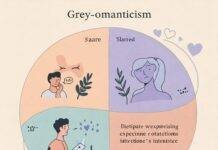Indeed, in the quiet corners of the internet, where anonymity reigns, a question echoes: “Am I normal?” This simple yet profound query reveals the hidden anxieties and unspoken concerns that many people harbor. In a similar vein, in a world saturated with carefully curated social media feeds and idealized portrayals, it’s easy to feel like an outlier. Therefore, this article delves into the secret searches and hidden insecurities that people quietly grapple with, shedding light on the universal nature of these experiences.

H2: Understanding the “Am I Normal?” Phenomenon
To begin with, the question “Am I normal?” often arises from the dissonance between perceived societal expectations and personal experiences. Consequently, the desire for validation and acceptance drives countless individuals to seek answers online, searching for reassurance that their thoughts, feelings, and behaviors are within the realm of normalcy.
H3: The Impact of Social Comparison
Moreover, social media amplifies the tendency to compare ourselves to others, leading to feelings of inadequacy. Specifically, the carefully constructed online personas we encounter create an illusion of perfect lives, fueling self-doubt and the persistent question, “Am I normal?”
- Actionable Takeaway: Practice mindful social media consumption. For instance, limit exposure to accounts that trigger negative comparisons and focus on cultivating a realistic perspective.
- Data-Driven Insight: Additionally, studies show that increased social media use correlates with higher levels of anxiety and depression, particularly among young adults. Reference: American Psychological Association
H3: Navigating Hidden Insecurities
Likewise, everyone experiences insecurities, but many are reluctant to voice them aloud. As a result, these hidden insecurities often manifest as secret searches, ranging from concerns about physical appearance to anxieties about social skills and emotional stability. Thus, the question, “Am I normal?” is a common thread in these searches.

H2: Common Unspoken Concerns and Their Search Patterns
Furthermore, several recurring themes emerge in these secret searches, revealing the shared nature of seemingly individual anxieties.
- Body Image and Appearance: Notably, concerns about weight, skin, and physical attractiveness are prevalent, reflecting societal pressures and media portrayals.
- Social Anxiety and Relationships: Similarly, questions about social awkwardness, relationship dynamics, and fitting in highlight the universal desire for connection and acceptance.
- Mental and Emotional Well-being: In particular, searches related to mood swings, anxiety, and feelings of inadequacy reveal the growing awareness of mental health challenges.
H3: Addressing Mental Health Concerns
When, the question “Am I normal?” stems from mental health struggles, seeking professional help is crucial. In this way, mental health resources provide support and guidance for navigating complex emotions and developing coping strategies.
- Resource: To illustrate, The National Alliance on Mental Illness (NAMI) offers valuable information and support for individuals and families affected by mental illness. Reference: NAMI
H2: Finding Comfort and Clarity: Redefining Normal
Ultimately, the search for normalcy is a quest for self-acceptance. Moreover, embracing individuality and recognizing the diversity of human experiences can help redefine the concept of “normal.”
- Actionable Takeaway: Practice self-compassion and challenge negative self-talk. Instead, focus on your strengths and cultivate a positive self-image.
- Real-World Example: For example, many successful individuals have overcome feelings of inadequacy and self-doubt. Indeed, embracing their unique qualities and perspectives has contributed to their achievements.

H3: Building Self-Acceptance
In essence, cultivating self-acceptance involves acknowledging your imperfections and embracing your authentic self. Therefore, the question “Am I normal?” can be answered by validating your own unique experience.
- Tip: Specifically, engage in activities that promote self-reflection and personal growth, such as journaling, meditation, or therapy.




































